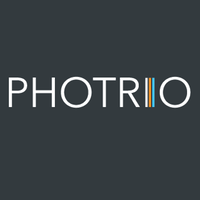Andreas Thaler
Subscriber
This year I have decided to deepen my theoretical knowledge of camera technology in addition to the ongoing repair projects. This includes electronics, mechanics and optics.
The more you know about what you are trying to repair, the higher the chances of success
I'm particularly interested in the electromechanical SLRs with accessoires from the mid-1970s to the mid-1980s.
For example Canon A-series, Minolta X/XE/XG/XD, Nikon F3/FG/FA/FE/FM, Olympus OM-4, Leica R3 etc.
I am supplied with specialist literature on these topics, my general knowledge of them is acceptable to good and I would like to do this not alone, but together with all those who are interested. Regardless of whether they do DIY repairs or are enthusiastic about camera technology on their own.
My question is whether there is interest here. I would open a thread where we can exchange information and experiences.
The aim is to deepen the knowledge and integrate it into repair practice. So it shouldn't be a purely theoretical discussion
Admittedly, electronics, mechanics and optics are not the easiest topics, but they are essential if you want to understand more about these cameras. It's easier to deal with it together
The more you know about what you are trying to repair, the higher the chances of success

I'm particularly interested in the electromechanical SLRs with accessoires from the mid-1970s to the mid-1980s.
For example Canon A-series, Minolta X/XE/XG/XD, Nikon F3/FG/FA/FE/FM, Olympus OM-4, Leica R3 etc.
I am supplied with specialist literature on these topics, my general knowledge of them is acceptable to good and I would like to do this not alone, but together with all those who are interested. Regardless of whether they do DIY repairs or are enthusiastic about camera technology on their own.
My question is whether there is interest here. I would open a thread where we can exchange information and experiences.
The aim is to deepen the knowledge and integrate it into repair practice. So it shouldn't be a purely theoretical discussion

Admittedly, electronics, mechanics and optics are not the easiest topics, but they are essential if you want to understand more about these cameras. It's easier to deal with it together

Last edited:














